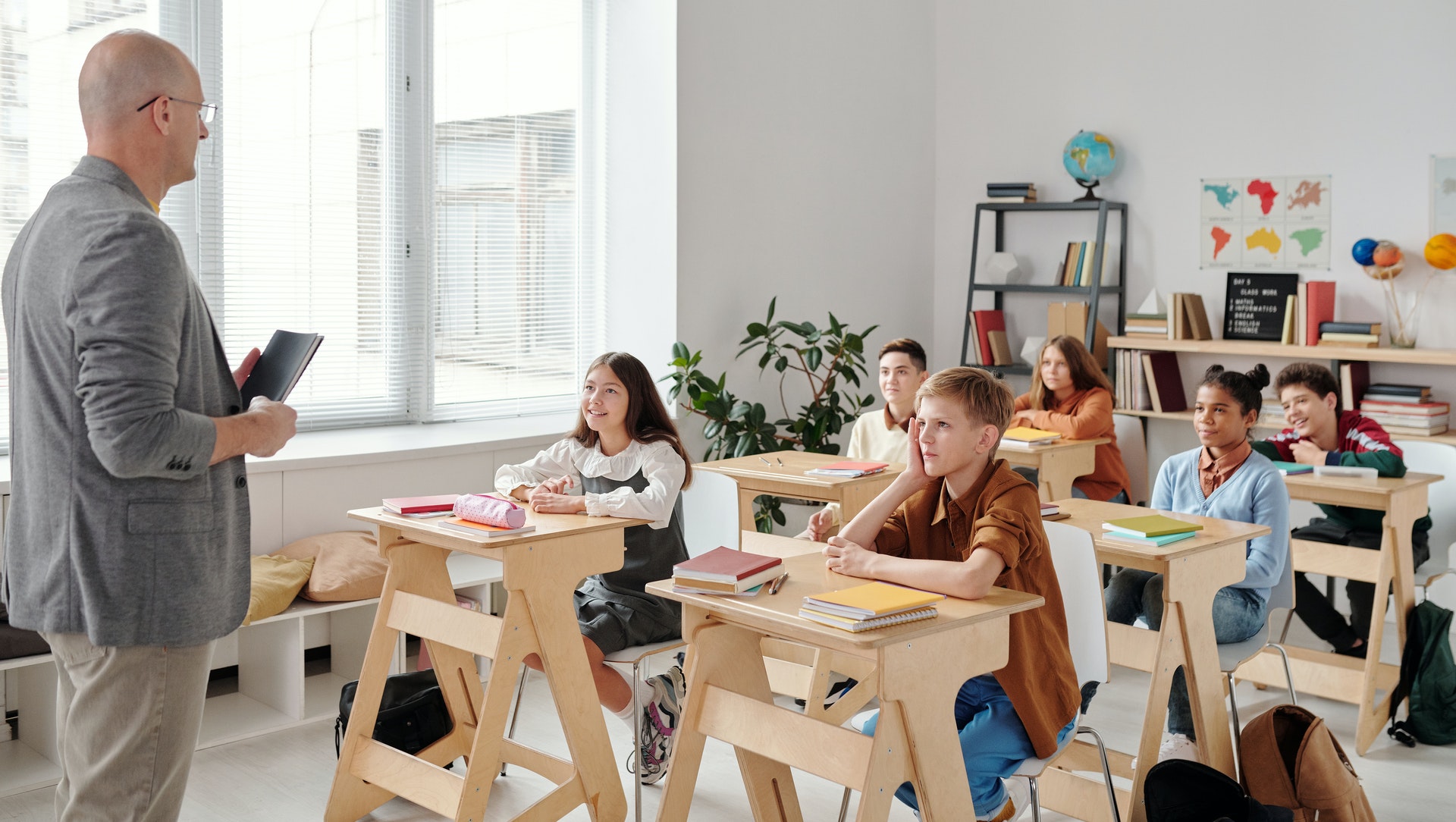Home > Services > Workplace Conflict Management & Resolution Training > Conflict Resolution Training for Students
At Pollack Peacebuilding, we pride ourselves on being specialists in providing custom-made conflict resolution training for student audiences. Our approach is tailored to the unique challenges and dynamics that students face in educational settings.
Focusing on classroom conflict, student conflict, and peer mediation ensures that students learn practical and effective strategies to navigate and resolve disputes, promoting a more harmonious and productive learning environment.
Student-Specific Conflict Scenarios
In educational settings, students encounter various conflicts that require unique approaches and skills. Pollack Peacebuilding understands these challenges and is dedicated to teaching conflict resolution skills, helping students navigate them effectively.
Peer Conflicts
In middle school, peer conflicts are a significant aspect of students’ social interactions. These conflicts often range from simple disagreements over personal choices to more complex issues like exclusion, rumors, and cyberbullying. Within the diverse friend groups, cliques, and classmates, these conflicts can take various forms:
- Disputes over personal preferences or interests.
- Exclusion or isolation within social groups.
- Spreading rumors or engaging in gossip.
- Cyberbullying through social media or text messaging.
Pollack Peacebuilding focuses on equipping students with the conflict resolution skills they need to navigate these challenges. Our approach includes teaching effective communication and fostering an environment of active listening and empathy.
We engage students in conflict resolution activities that not only help them resolve conflicts but also turn these challenging situations into a learning opportunity.
Group Dynamics
Group dynamics in schools often involve intricate scenarios like rivalry between groups, diverse expectations during elections, and disputes over the use of spaces and assets. These situations can lead to a classroom conflict or even affect the broader school environment. Examples include:
- Rivalry between different student groups or clubs.
- Conflicts that arise during student body elections or other democratic processes.
- Disagreements over the allocation or use of school spaces and resources.
Our expertise lies in helping students understand and manage these dynamics through problem-solving skills and effective conflict-management strategies. We empower students to brainstorm solutions collaboratively and prompt them to view these situations as an opportunity to strengthen their skills in diplomacy and negotiation.
Interpersonal Challenges
Interpersonal challenges in educational settings often manifest as students being ostracized, mocked, in an unpleasant class atmosphere, isolated, and exhibiting selfish behavior. These challenges can have a profound impact on students’ learning and emotional well-being. Common scenarios include:
- A student feeling ostracized or excluded by their peers.
- Mocking or teasing leading to hurt feelings or misunderstandings.
- A general atmosphere of unpleasantness or negativity in the classroom.
- Instances of isolation or selfish actions impacting group work or cooperation.
Through conflict resolution seminars, Pollack Peacebuilding addresses these issues with a focus on building interpersonal conflict resolution strategies. This involves teaching students, especially younger students, the importance of empathy, respect, and inclusivity.
Our approach to classroom management emphasizes creating an environment where every student feels valued and heard. This not only helps students resolve immediate issues but also prepares them to handle similar situations in the future.

Adapted Training Programs
Pollack Peacebuilding has developed specialized training programs that cater specifically to the needs of student audiences. Our programs are designed to be not only informative but also interactive and engaging, ensuring that they resonate with students and effectively teach them practical conflict resolution skills for both academic and social contexts.
Peer Mediation
Peer Mediation is a key component of our training program. This approach empowers students to take an active role in resolving conflicts among their peers. We teach students how to:
- Act as neutral mediators between two students in conflict.
- Use reflective listening to understand the perspective of each student.
- Help students communicate their feelings without resorting to name-calling or aggression.
- Facilitate a dialogue that leads to a mutually agreeable solution.
This method not only helps resolve the immediate issue but also builds self-confidence and self-control among students, preparing them for future problems.
Conflict Resolution Skills
In our conflict resolution skills module, we focus on equipping students with the necessary tools to handle conflicts effectively. Key aspects include:
- Teaching the importance of taking deep breaths and staying calm during conflicts.
- Encouraging the use of ‘I messages’ to express feelings without blaming the other student.
- Developing students’ ability to handle conflicts with empathy and understanding.
- Training in identifying the root causes of conflicts and addressing them constructively.
These skills are essential for students to navigate challenging situations both in school and in their personal lives.
Managing Classroom Conflict
Managing Classroom Conflict is tailored to address the specific dynamics of the educational environment. We aim to:
- Check students’ understanding of conflict triggers in a classroom setting.
- Train teachers and students in proactive classroom management strategies.
- Foster an environment where students feel safe to express their concerns.
- Encourage students to view conflicts as opportunities for learning and growth.
This program is designed to teach kids and create a more harmonious and productive classroom environment, reducing conflicts and enhancing the overall learning experience.
Managing Conflict Using Activities and Games
To make the learning process more engaging, we incorporate various activities and games into our training. These interactive elements:
- Help students understand conflict resolution in a fun and memorable way.
- Use role-playing games to simulate real-life conflicts, allowing students to practice their skills in a safe environment.
- Include team-building exercises to improve cooperation and empathy among students.
- Teach students critical thinking and problem-solving in a playful context.
These activities are not only enjoyable but also effective in reinforcing the conflict resolution skills that students acquire, making them more adept at dealing with conflicts in their daily lives.

Benefits for Students
At Pollack Peacebuilding, we believe in the transformative power of conflict resolution education for children. Our programs are designed to provide numerous benefits to students, positively impacting their school experience and overall development.
Improved Communication
One of the primary benefits for students is the enhancement of their communication skills. Through our training, children learn how to articulate their feelings, listen to others, and effectively express their ideas.
For example, a child who learns to use ‘I’ statements can express themselves without blaming others, leading to healthier interactions. This skill is not only beneficial in classrooms but also in their personal lives, helping them deal with various social situations.
Enhanced Problem-Solving Skills
Problem-solving is another critical area where students benefit greatly. Our training focuses on developing strategies to approach and resolve conflicts, enhancing children’s ability to think critically and create innovative solutions.
For instance, teaching students to break down a problem into smaller parts helps them understand and tackle issues more effectively. This skill is invaluable in both academic and personal settings, allowing children to approach challenges with confidence, even when de-escalating potential conflict.
A Positive School Environment
The impact of our training on the school environment is profound. Children who are equipped with conflict resolution skills contribute to a more harmonious and respectful atmosphere in classrooms. This positive change not only benefits individual students but also improves the overall dynamic among children, teachers, and peers.
For instance, when students understand the role of empathy and perspective-taking, they are more likely to understand and respect their classmates, reducing instances of bullying and disputes.
Impact on Academic Performance
There is a strong correlation between conflict resolution skills and academic performance. Students who are adept at managing conflicts spend less time dealing with distractions and more time focusing on their studies. This focus leads to better class participation, improved grades, and a more fulfilling academic experience.
Overall Well-Being
The overall well-being of students is significantly enhanced through conflict resolution training. Skills in resolving conflicts not only help children deal with immediate issues but also contribute to their long-term emotional health.
When students learn to manage their emotions and control their responses to challenging situations, they develop resilience. This ability to cope with adversity is crucial for their mental health and personal growth.
Additionally, parents and teachers can notice an improvement in students’ self-esteem and social interactions as they become more adept at handling various situations with maturity and responsibility.
In each aspect, from improving communication to enhancing overall well-being, the focus is on empowering students to develop essential life skills. Our approach at Pollack Peacebuilding is to encourage students to view conflict not just as a hurdle but as an opportunity for growth and learning.
By equipping children with these skills, we are setting them up for success both in the classroom and beyond, fostering a generation of thoughtful, empathetic, and capable individuals.
Empower Your Students with Conflict Resolution
Take the pivotal step toward creating a harmonious learning environment in your institution. Invest in Pollack Peacebuilding’s conflict resolution training and witness a transformative change in your students’ interpersonal skills and overall school atmosphere.
We invite educational institutions to explore our tailored training programs designed to meet the unique needs of your students and faculty. Reach out to us for a consultation and begin the journey toward a more peaceful, productive learning space.

